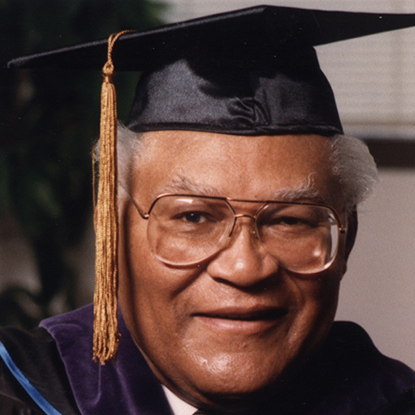Carl Maxey ('51 J.D.)
About the Program
In January 2021, Gonzaga University School of Law established the Carl Maxey Social Justice Scholarship Program in honor of Gonzaga Law graduate and distinguished attorney Carl Maxey.
Carl Maxey was a giant in civil rights, law, sports and politics. Orphaned at the age of two and growing up in a predominantly white community, Carl’s first-hand experiences of racism and inequality were the seeds that fueled his passion for social justice. He was the first African American man in Eastern Washington to pass the bar and become an attorney. During his career of over 40 years, Carl earned a well-deserved reputation as an exceptional trial lawyer and a nationally-recognized civil rights leader. You can read more about Carl Maxey and his legacy here.
The Carl Maxey Social Justice Scholarship Program provides a unique opportunity for exceptional students to further their commitment to social justice and to become leaders in the profession. Each year, a scholarship committee selects several students to be Social Justice scholars. These scholars are awarded full tuition scholarships to allow them to pursue careers in social justice and to serve the public good.
Program Opportunities
Individuals selected to be Social Justice scholars will be able to enhance their educational experiences and pursue their social justice interests through coursework, mentorship, programming, and community involvement. Upon the completion of the requirements and expectations of the program, plus the satisfaction of an additional writing requirement, scholars may also receive a Certificate in Civil and Human Rights at graduation.Eligibility & Selection
Social Justice scholars are selected based on their commitment to social justice and their leadership potential and promise. In addition, each Social Justice scholar must bring diversity to the program and to the profession, in terms of race, ethnicity, national origin, gender, age, sexual orientation, disability status, gender identity and expression, immigration status, honorably discharged veteran or military status, and socio-economic background. Individuals from traditionally underrepresented groups in law school in general and Gonzaga University in particular are especially encouraged to apply.

